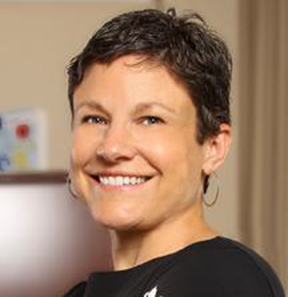In India, poor women are trained to provide low-cost, door-to-door diabetes services in rural communities. This is a critical service; 70% of India’s population lacks reliable access to medical services, including blood glucose testing. In the US, the Health Leads program takes aim at non-medical issues, such as lack of transportation to a doctor’s appointment or not enough food at home, that undermine health.
For these programs and others like them, the message is clear: Improving health and healthcare requires new thinking and fresh ideas. Social entrepreneurs, including the founders of these programs, are at the forefront of new ideas in healthcare (and many other industries).
Most people have heard of social entrepreneurs. What they may not know is that some large healthcare companies are also playing a role in social entrepreneurship. Driven by a need to remain competitive and a desire to bring about positive change, these companies are pursuing a strategy—social business—that combines profit with purpose.
In some ways, social business is a natural fit for global healthcare companies. Being on the front lines and supporting new approaches is a logical extension of their core mission of promoting better health through discovery and innovation.
They understand that the current system is inadequate to address global healthcare issues. Access, affordability and patient value can all be dramatically improved. Social business can help spark creativity and create new pathways to improve access, affordability and delivery of healthcare services, and improve the patient experience.
Some healthcare companies are pursuing social business through partnerships. In one example, healthcare company Boehringer Ingelheim is working with Ashoka, an organization that supports social entrepreneurs, in a partnership called “Making More Health” (MMH).
Among the projects MMH supports are Reg4ALL, the first participant-controlled, cross-disease registry for health and disease data. The platform enables patients to connect with researchers who need participants for life-saving clinical trials.
In addition to large-scale partnerships, there are a number of other ways for companies to get involved in social business. They can provide resources and support, such as “lending” their skilled executives to small organizations or providing financial support for promising ventures. They can engage their employees in strategic volunteerism, among other options.
Whatever form it takes, engaging in social business and interacting with health innovators and social entrepreneurs has multiple benefits. In one scenario, an employee could bring a workable idea or the seed of an idea back to his or her employer. That idea could develop into a program or treatment that could improve lives and have great commercial potential.
Every engagement won’t result in a commercial success, of course, but there are other benefits that are equally important. Employees who have been in the field or engaged with a nonprofit in some way will return to their jobs with more knowledge about the patients they serve, what their needs are and how to improve healthcare delivery.
Exposure to different cultures, geographies and conditions can be illuminating. Back on the job, employees can bring new insights to their work. They may also have developed important soft skills, such as project management and how to work in low-resourced environments, that they might not have gained doing their usual job.
Also, at a time when employees are looking for meaning in their work, social business offers companies an opportunity to demonstrate how they act on their values. For both employer and employee, a shared mission creates loyalty and a strong bond.
It’s evident that healthcare, like many other industries, is being called on to do more with less. Social business is a key factor in creating success in challenging circumstances. Sarrell Dental, a provider in Alabama, is just one example of the power of innovation to drive efficiency and better results.
Sarrell is the only full-time Medicaid dental provider in Alabama. With the goal of improving access to oral healthcare, Sarrell developed a new business model for offering quality dental care to children covered by Medicaid. The bold model has allowed it to scale dramatically, all while lowering the cost of care to the government.
While Sarrell is a nonprofit, its model demonstrates that healthcare innovation is the way forward. In 2012, the organization had more than 130,000 patient visits and generated $15.6 million in revenue, according to a May 15, 2013, article in the Birmingham Business Journal.
Global healthcare companies are looking to—and supporting—the social entrepreneurs who “disrupt” the industry. With the help of social business, with its twin goals of generating profits and social good, the future of healthcare is emerging: Innovative service delivery models and new partnerships that make care more efficient and more valuable for patients.
Whether those developing models take shape through glucose testing in Bangalore or volunteers helping patients find safe housing in Boston, social business is transforming healthcare.
Amy Fry is VP of public affairs and communications, Boehringer Ingelheim.







